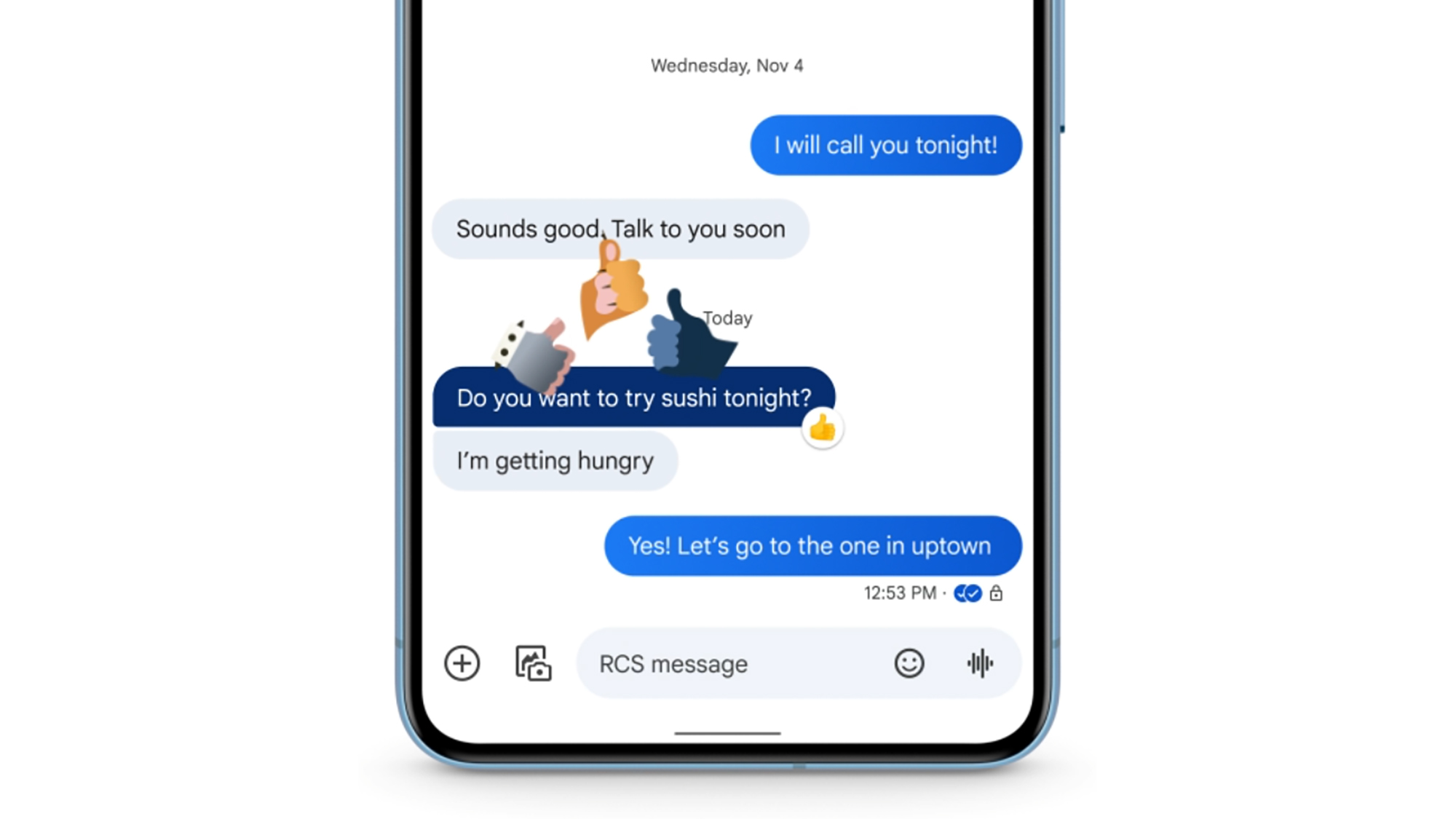Google Messages rolls out emoji reactions to become even more like iMessage
Announced last year

Google Messages continues to get regular upgrades to its functionality: After adding animated emojis, photomoji (creating reactions from images), and screen effects (full screen animations), we're now seeing reaction effects roll out to a wide number of users.
As spotted on social media and reported by 9to5Google, these reaction effects show up when you apply an emoji reaction to a text. Adding a thumbs up, for example, leads to several animated thumbs up icons dancing around the message. As far as we can tell, you can't turn these effects off.
A total of 10 emoji reactions produce extended effects: thumbs up, thumbs down, red heart, face with tears of joy, face with open mouth, enraged face, angry face, crying face, pile of poo, and party popper.
If you've got an Android phone running the latest version of Google Messages, you can try them out: press and hold on a message you've sent or received, and pick one of the emoji listed above. Hit the tears of joy face, for instance, and you should see a couple of inflatable dancing figures show up as well.
React like you mean it
Reaction effects show up on SMS and RCS messages, and we've seen them working on both Pixel and Samsung Galaxy phones, so it seems the roll out – which adds a little more life to the chat window – is widespread now.
This feature was actually announced back in November, so it's taken a while to reach the masses. As we said at the time, it gives Google Messages a bit more of an iMessage feel, considering Apple's messaging app already offers a variety of ways to get emojis and animations dancing across the screen.
"Reaction effects is an addition to your messaging experience that injects more life into your conversations," explained Google. "This feature, designed to add a dynamic twist to your chats, embraces the power of expression."
Sign up for breaking news, reviews, opinion, top tech deals, and more.
For the time being, this only works on Android, so your iPhone-toting friends aren't going to see the same effects. We'll have to wait and see if that changes when Apple adds RCS support to iOS at some point this year – part of an ongoing attempt to escape further antitrust regulation from the European Union.
You might also like

Dave is a freelance tech journalist who has been writing about gadgets, apps and the web for more than two decades. Based out of Stockport, England, on TechRadar you'll find him covering news, features and reviews, particularly for phones, tablets and wearables. Working to ensure our breaking news coverage is the best in the business over weekends, David also has bylines at Gizmodo, T3, PopSci and a few other places besides, as well as being many years editing the likes of PC Explorer and The Hardware Handbook.